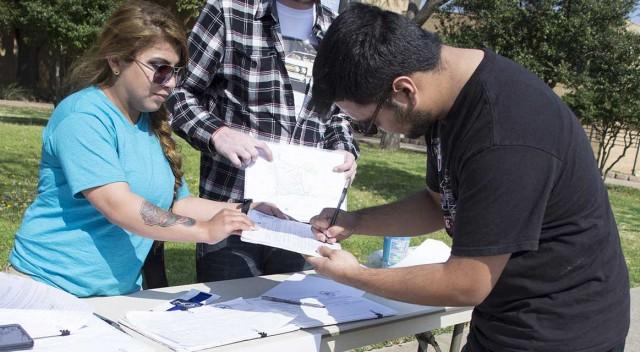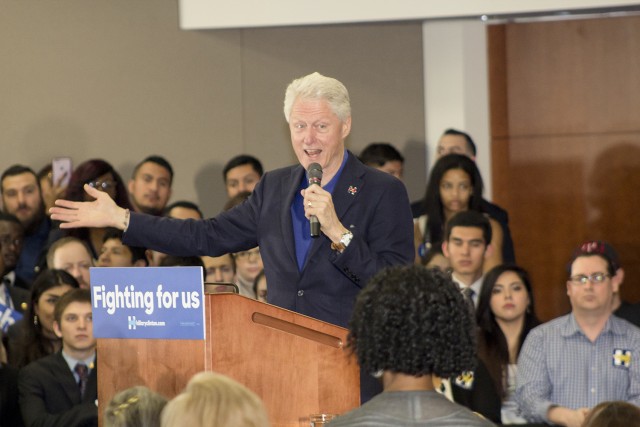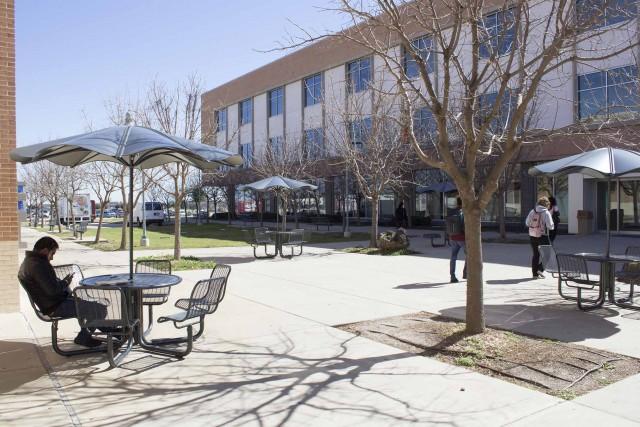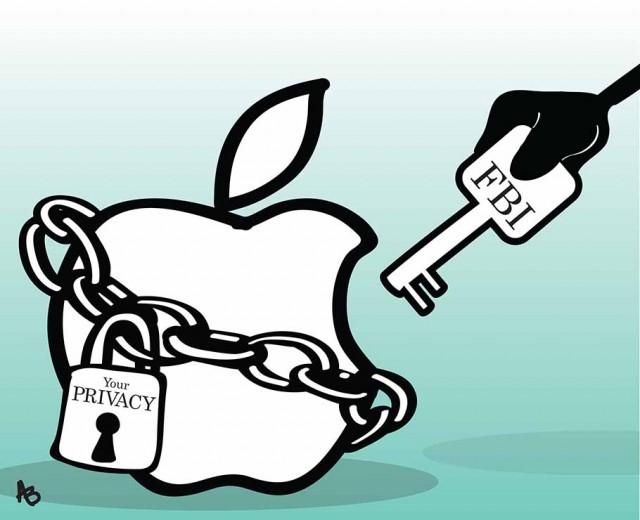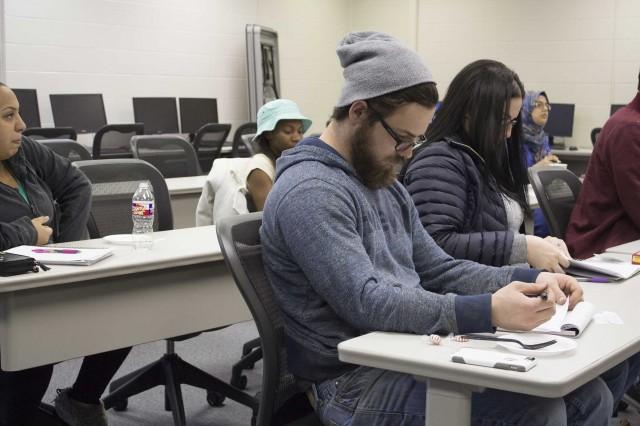By Gerrit Goodwin/ campus news editor
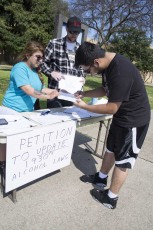
Katelyn Townsend/The Collegian
Beer and wine can be picked up from almost any supermarket or gas station around North Texas, but when it comes to the sale of hard liquor, some cities such as Hurst prefer to do without.
However, Josh Hamlin believes that hard liquor isn’t inherently problematic and has the potential to benefit local communities. The problem is how people use it.
Hamlin has recently been on NE Campus circulating a petition to allow hard liquor sales in parts of Fort Worth, Haltom City, North Richland Hills, Watauga and Hurst. After two weeks of setting up his booth in different locales, he has amassed 4,000 of the 19,000 signatures needed to put the issue on the ballot in May.
“I feel like this is important because it gives the people more opportunities to be responsible,” he said. “Personally, I don’t drink, but I don’t think it’s right that people in the area have to go out to bars to drink and are then expected to drive home safely at two in the morning.”
The petition would allow for the legal sale of liquor and the off-premise consumption of alcohol, such as at home, but there are far more benefits to the petition than drinking, Hamlin said.
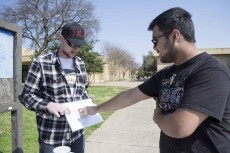
Katelyn Townsend/The Collegian
“The hardest part to getting people to sign is changing their perception of what should be legal,” he said. “The individual city’s infrastructure such as roads and schools would all benefit from the sale of liquor because if it’s legal, it then becomes taxable.”
NE vocal instructor Stan Paschal doesn’t think that the issue of alcohol consumption necessarily affects him but can still see the benefit of legalizing liquor sales in the area.
“The issue is individual responsibility. From a practical standpoint, I would vote yes to legalize liquor sales because it would increase the tax revenue in those cities, which is a bonus,” he said. “But then the argument becomes about the moral and ethical problems that come with regulation, which shouldn’t be decided by legislation.”
NE student Nykolas Muldrow said he would vote to pass the legislation because it would benefit his community and also afford him convenience when he wanted to get a drink.
“If people don’t want to drink, then they don’t have to. Nobody is forcing them,” he said. “That’s why I don’t think it’s fair that someone else’s morals can hinder me from drinking.”
For NE student Zoge Muhametaj, her vote depends on certain circumstances, such as how it will affect the local youth.
“Think about what kind of traffic liquor stores bring to the area and what kind of influence comes with it,” she said. “I wouldn’t want liquor stores near any elementary school or high school for that matter.”
Muhametaj said that just because people have to drive farther to get liquor doesn’t mean that their rights are being infringed upon.
“It’s not dictating whether or not you can drink, just where you can,” she said.






















